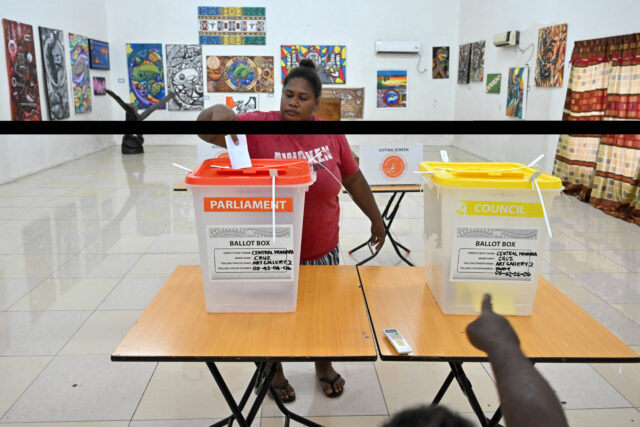On Thursday, Solomon Islands legislators will vote in a secret ballot to elect a new prime minister, with candidates including Foreign Minister Jeremiah Manele and opposition leader Matthew Wale. This follows a national election that did not result in a majority for any party. The election is under international scrutiny from China, the U.S., and Australia, given its implications for regional security. This heightened interest stems from a security agreement made in 2022 between the incumbent Prime Minister Manasseh Sogavare and China.
Sogavare, who built close ties with Beijing during five years in power, is not seeking re-election to the top political office. His party claims it has enough support from independent candidates to form a government led by Manele.
Wale, in a 20-seat coalition of four opposition parties, said on Wednesday that lobbying of politicians ahead of the vote was dominated by “people asking for money and positions”.
“The lobbying going on at the moment is not about policy,” he said at a Solomon Islands National University event.
“It’s not about the future of this country. We are trying to select the leadership, to build numbers for it, by people asking for money and positions. What’s in it for themselves?”
Manele declined to attend the event, which had been billed by the university as a leaders debate, and Wale criticised the government for being “scared of their own people”.
Lawmakers gathered in the capital Honiara this week to decide which political camp to support, ahead of the vote in parliament on Thursday at 9:30 a.m.
Manele’s OUR party, which has pledged to build more infrastructure, won 15 seats, and gained four seats under a renewed coalition with two micro parties. It needs support from seven independents to reach 26 seats for a majority in the 50-seat parliament.
Wale said the government had failed to create jobs and the economy was dominated by logging and mining companies which shipped resources to China, while health clinics were unable to obtain medications such as paracetamol.
With Inputs From Reuters
Research Associate at StratNewsGlobal, A keen observer of #China and Foreign Affairs. Writer, Weibo Trends, Analyst.
Twitter: @resham_sng





